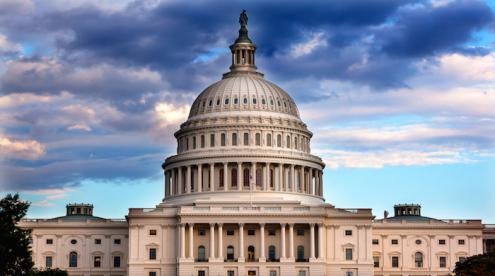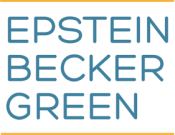Congress returns from its Memorial Day recess to four full weeks of legislative activity. The drama of the American Health Care Act (AHCA) now hangs over the Senate. The House will return to its regular work once they advance the FDA User Fee Reauthorization, with the Senate also having to schedule floor time for the package. Also on our radar this month will be the date June 21st– the date in which insurers decide if they will participate in the Obamacare Marketplace for 2018. This could play a role in the Administration’s ongoing discussions regarding cost-sharing reductions, as well as how the Senate approaches its version of the AHCA.
This work period should spell out how much momentum AHCA has in the Senate. Make no mistake, the AHCA could move this work period. But if you don’t have bill text in your hands by the end of the month one could begin to wonder if Senate Republicans can thread this needle without the Democrats.
American Health Care Act (AHCA) in the Senate
On May 24th, the Congressional Budget Office (CBO) released its score of the House-passed AHCA, estimating that the legislation would yield $119 billion in savings over the next decade. The reconciliation instructions require the Senate to save at least as much as the House bill. The Senate can spend more to make the bill more politically and policy palatable, but doing so will require finding additional savings.
The latest CBO score still projects over 20 million people losing coverage by 2026 and a May 2017 Kaiser Health Tracking Poll found that 55 percent of Americans have an unfavorable view of the AHCA. In fact, only 8 percent of Americans polled think the Senate should pass the AHCA as is.
Senate Republicans have their work cut out for them and they will want to avoid the drawn out process we saw unfold in the House this spring. In an interview with Reuters, Majority Leader Mitch McConnell said he didn’t know at the moment how his conference gets to 50 votes on health care. While some observers believe the Senate’s deadline is the August recess (July 28), we think the pressure is on the Senate to show a bill is plausible during this work period. If the Senate can’t see the finish line in sight before heading home for July 4th, they may not return to it afterwards.
User Fee Reauthorization
The FDA Reauthorization Act of 2017, which will reauthorize user-fee programs for prescription drugs, medical devices, generic drugs, and biosimiliar biological products, is readying to leave the station. The current user fee authorization expires September 30, 2017, meaning come October 1 the FDA would no longer be able to collect user fees from the industry. The expectation is that this gets done this month, with the consequence for failure being the FDA begins issuing furlough notices to workers. No matter the skirmishes that may come up, Congress will pass the user fee acts before those furlough notices are sent.
The House Energy & Commerce Committee will have a markup on the bill next week, which will then head to the floor for a final vote. The Senate will also need to schedule floor time, and an open amendment process could take time with drug pricing amendments likely to come up. However, there is plenty of calendar time to get it done in June.
Marketplace Deadlines
The deadline for filing qualified health plan applications and rates for 2018 is June 21st. In other words, June 21st is generally the deadline in which insurers will decide if they will participate in the Marketplace in 2018. This will give us our first idea on what rate increases will be and what counties will have participating insurers. If there are numerous counties throughout the country without participating insurers, the efforts by the Administration and Congress to encourage or financially incentivize plans to participate will begin. But that assumes the Administration and Congress want to fix the problem.
Expect discussions around cost-sharing reductions to pick up in intensity as June 21st draws near.
The Minibus
As the House returns to regular order, expect the Energy & Commerce and Ways & Means Committees to begin their review of the looming Minibus. The minibus refers to the handful of policy provisions tied together in one piece of legislation. Those programs include: the Children’s Health Insurance Program (CHIP), the Maternal, Infant, Early Childhood Home Visiting (MIECHV) program, the Community Health Centers Fund, Disproportionate Share Hospital reductions, Outpatient Therapy Caps, and Special Needs Plans.
Simply put, this may be one of the few opportunities this year for members to advance their health care priorities.



 />i
/>i


